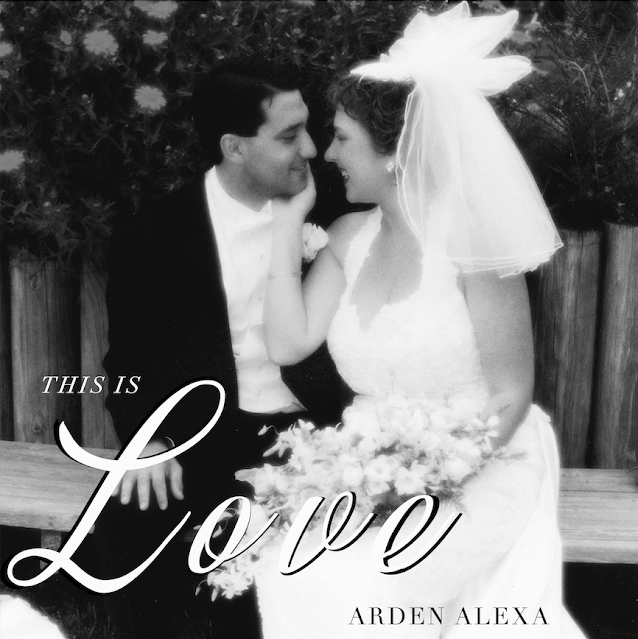The very first sound you hear in Bicycle Away which was released January 19th, 2024, isn’t an instrument, it’s a voice. Sam Rappaport enters with an emotive, slightly husky vocal delivery, steeped in vulnerability, like someone on the verge of a revelation. It’s a voice that doesn’t just sing, it aches, it remembers, it searches. And then, almost like a tender embrace, the Wurlitzer keys enter, soft, unintrusive, wrapping around his words with light soulful textures and a dreamlike warmth. It’s an intimate invitation into a world where nostalgia meets uncertainty, where the echoes of youth ride side by side with the complexity of adult emotions. The tone is pensive and reflective, yet also quietly powerful. The emotive line, Cold water hits my eyelids / I remember 17, doesn’t just set the stage, it opens a floodgate. It transports you, instantly, to a place both real and imagined, where the innocence of adolescence collides with the deeper questions of love, intimacy, and freedom.
Musically, the song unfolds with the kind of slow-burning elegance that doesn’t seek to impress, but rather to connect. There’s no rush, only the steady unveiling of emotion through arrangement. Each instrumental layer feels purposeful and conversational. Lorenzo Wolff’s production is marked by patience and grace, allowing the textures to breathe, to swell gently like waves. The bass, handled masterfully by Spencer Zahn, hums beneath the track with a heartbeat-like presence, subtle but grounding. Alwyn Robinson’s light drumming adds a shuffle that feels like the gentle rhythm of bike wheels rolling on pavement, an aural metaphor for the emotional motion of the song. Then there’s the ghostly presence of Mike Haldeman’s guitar, which weaves in and out like a memory, echoing Rappaport’s wistful lyrical tone. The instrumentation never overshadows the vocal, it exists beside it, with it, like two old friends walking quietly through a shared history.
The emotional architecture of Bicycle Away is perhaps its most compelling feature. Sam Rappaport’s voice doesn’t just sing the lyrics, it carries them with a fragility that feels lived-in. He doesn’t overreach, doesn’t perform for drama, instead, he stays in the pocket of authenticity, letting the song’s soul speak for itself. His delivery balances intimacy with restraint, capturing the emotional tightrope of wanting to run toward and away from love at the same time. Lines like I’ll bicycle away are delivered not with bitterness or finality, but with a soft kind of surrender, as if he knows the act of leaving is necessary but still aches because of it. His vocal tone drips with nostalgia and weariness, like someone caught in the gravity of memories they can’t quite escape. It’s not just about what’s being said, it’s about what’s being felt between the lines.
What truly makes Bicycle Away transcendent is the perfect harmony between voice and instrumentation. The song doesn’t rely on a dynamic peak or a cinematic crescendo; rather, it achieves emotional lift through cohesion and nuance. Every chord, every melodic swell, every slight inflection in Sam’s voice is tethered to the mood created by the sonic palette. The keyboard textures shimmer gently like late-afternoon light on water, while the rhythm section glides underneath like a current pulling everything along. It’s as though the instruments are breathing with him, pausing when he pauses, surging when he subtly leans into longing. This interplay builds an atmosphere that is more than sound, it becomes feeling, a sonic manifestation of longing, clarity, and motion. As you listen, you’ll find yourself enveloped by the song’s delicate emotional gravity. There’s a stillness it brings, the kind that makes you pause whatever you’re doing and just be.
The production is warm and spacious, yet emotionally close, like hearing someone speak from the other side of a closed bedroom door. The track doesn’t demand attention, it earns it through authenticity, soul, and a kind of melancholy beauty. I felt the ache of departure, the sweetness of remembrance, and the soft ache of someone trying to navigate their own emotional map. It reminded me of my own versions of bicycling away, those emotional crossroads where you choose to quietly slip away rather than stand still in confusion. The visual counterpart, a delicately choreographed video featuring interpretive dance, only deepens this emotional world. Dancers Sonja Petermann and Samantha Figgins mirror the song’s internal movements with a language of the body that is equally as expressive as the lyrics.
Their gestures, both subtle and expansive, translate Sam Rappaport’s emotional current into something visual and visceral. This fusion of music and movement underscores the song’s central theme: that intimacy is as much about movement and distance as it is about closeness. It’s a stunning embodiment of how art can reflect the inner journey we rarely articulate. In its final breath, Bicycle Away lingers,not as a melody stuck in your head, but as a feeling rooted deep in your chest. It’s one of those rare songs that doesn’t just play in your ears, it stays with you, long after the final chord fades. Sam Rappaport has crafted more than just a single, he’s delivered an emotional experience, one that captures the fragility of connection and the courage it takes to move forward with grace. Bicycle Away isn’t about escape in the typical sense, it’s about quiet liberation, about rolling into clarity with the wind in your face and the past trailing softly behind you.
Connect with Sam Rappaport below.



